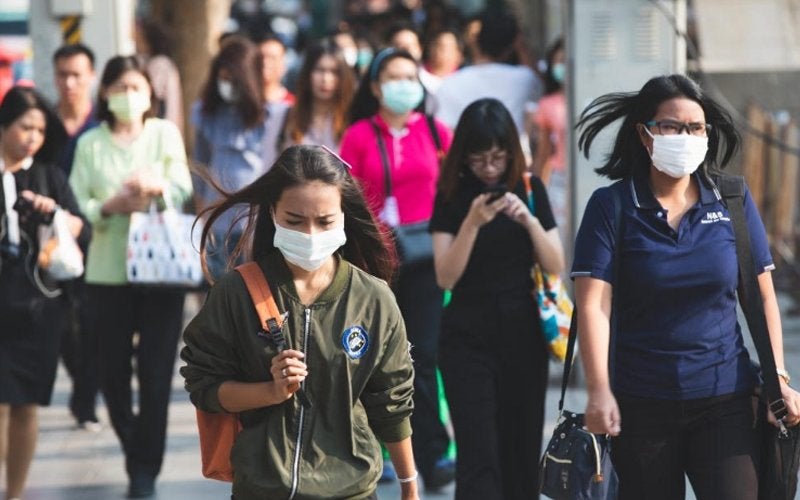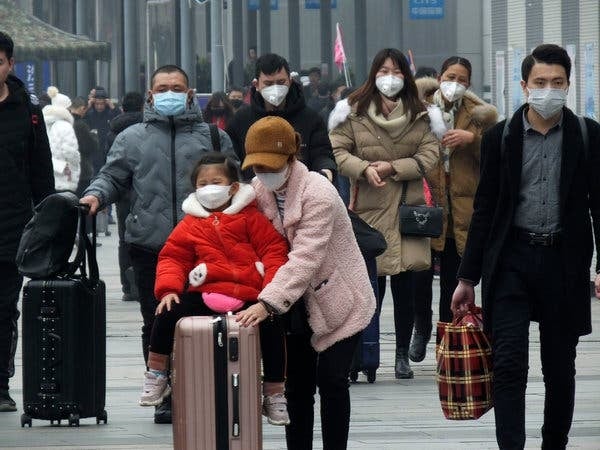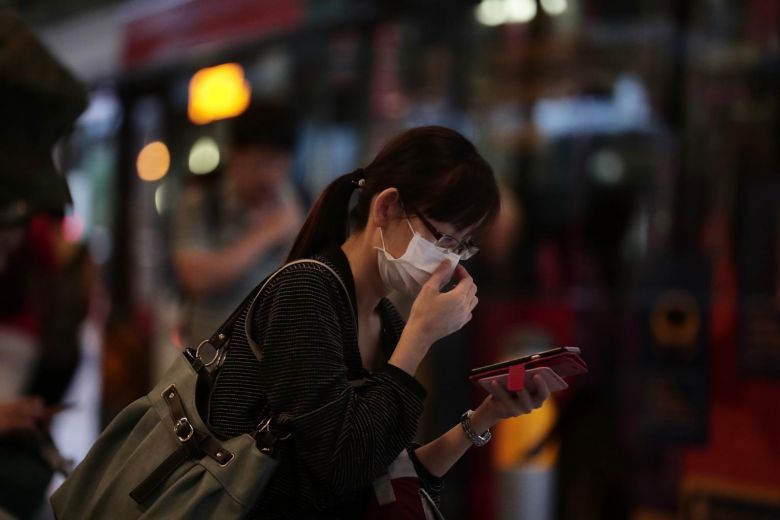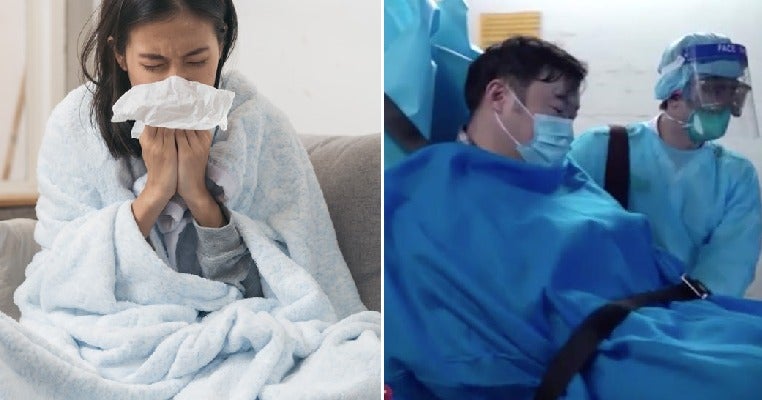First, it was the influenza A outbreak in Malaysia then after that came the Wuhan virus scare. These sicknesses are linked to the respiratory system and seem to have similar symptoms. So, if you do fall sick, then how do you know which illness you have? After all, the common cold is pretty similar too and you don’t want to rush to the hospital for this right?
According to China Press, there is a clear difference between the common cold, influenza and the new coronavirus, dubbed the Wuhan virus. The incubation period for the Wuhan virus is about seven days on average but symptoms can show up anytime from two to three days or even up to 12 days after infection. Here are some of the symptoms you should know:
Common Cold

Source: bustle
The common cold occurs when you contract a viral infection of your nose and throat (upper respiratory tract) which is usually harmless. You will usually have a runny or stuffy nose, sore throat, cough, slight body aches or a mild headache, sneezing and a low-grade fever. After two or three days your snot may become thicker and yellow or green in colour. The common cold usually heals within five to seven days.
Influenza

Source: fmt
Influenza attacks you suddenly and is different from a cold. It’s more dangerous and can even lead to death. Some of the symptoms include having a high fever of up to 40°C, chills, cough, fatigue, sore throat, nausea, vomiting and diarrhoea, breathing difficulties, headaches, dry eyes and rashes. If not treated, the situation may deteriorate into pneumonia
Wuhan virus (2019-nCoV)

Source: ny times
Symptoms of infection of the Wuhan virus include common respiratory symptoms such as fever, dry cough, shortness of breath and breathing difficulties. However, sometimes there may not be fever present. In more severe cases, the infection can worsen into pneumonia, severe acute respiratory syndrome, kidney failure and even death.
You should be alert especially if you have just come back from Wuhan or other parts of China, or come into contact with anyone who has recently travelled to China. Monitor your health for 14 days to see whether the symptoms still exist and immediately go to the hospital if you do. Otherwise, just go to the doctor if you are unsure as they have more accurate tests to diagnose your sickness.
Prevention

Source: cdc
To protect yourself from any virus, make sure to practice good hygiene. Always wash your hands with soap and warm water and remember to scrub for at least 20 seconds. Use alcohol-based sanitiser if water is not available and cover your mouth and nose when coughing or sneezing with a tissue. Throw the tissue away into rubbish bins. Keep at least six feet away from anyone who is sick or coughing and always cook your food thoroughly.
Experts advise that surgical masks are more effective in preventing the spread of the Wuhan virus compared to N95 masks, Straits Times reports. The report stated that surgical masks are more practical as it helps to block large-particle droplets and splatter from reaching the wearer’s mouth and nose and vice versa.

Source: straits times
The N95 mask was previously used for haze situations and when worn correctly, it’s supposed to be difficult for the person to breathe. If you are breathing comfortably in an N95 mask, you’re wearing it wrong and there’s no protection.
Always consult a medical professional if you are unsure! Stay safe and healthy!
Also read: Deadly Wuhan Virus Speculated to Originate from Bat Soup, Experts Urge Citizens to Stop Eating It








































